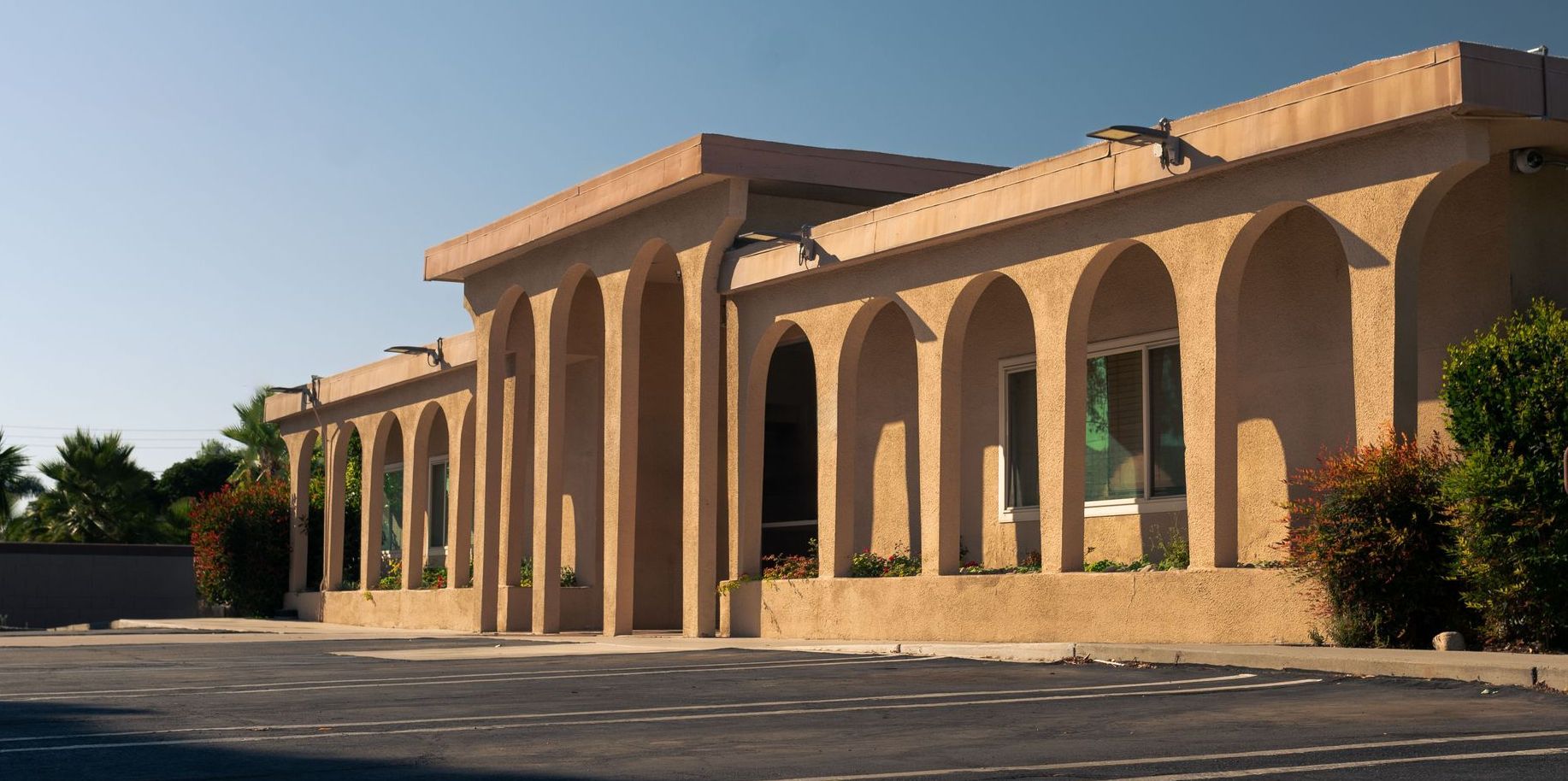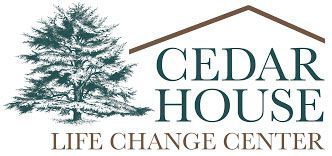Behind the Scenes

As a carpenter on set for the Los Angeles Ballet, Richard knew a thing or two about building a solid foundation. Board by board, he helped set the stage behind the scenes for beautiful performances. But, back home, his marriage was falling apart, and he didn’t seem to have the tools to repair it. He fell hard into a dangerous lifestyle of drinking heavily every day “to kill the pain.” The habit spiraled into eight years of alcoholism, suicide attempts and homelessness.
Richard recalled his first suicide attempt and the four-day stay in the hospital that followed. He said, “It was the best few days because I was taken out of the world and put in a safe place.” One of his nurses recommended Cedar House to him, and he agreed to go into treatment. That’s when his foundation was initially laid for recovery. He said it took him two weeks to truly sober up, but then he synced into rhythm for the next 90 days in residential treatment.
He said, “I am definitely not the same Richard.” At Cedar House, he got answers about how to deal with his fear and anger. He implemented what he learned and stayed sober for 13 months. Unfortunately, he relapsed and ended up in the hospital again a few years later. He thankfully returned to Cedar House where he was welcomed with open arms. He remembered a staff member encouraging him and telling him then that “this time you’ll hear something you didn’t hear last time.”
When he stumbled, he knew he could call on Cedar House to help him get back up. After another 90 days in treatment, Richard returned home and maintained his sobriety for 16 months. He cared for his ailing mother and managed a challenging relationship with his brother who had a drinking problem of his own. He admitted, “My relapses happened at home. Each relapse, my determination got stronger to not die an alcoholic’s death.” So, he returned to Cedar House.
During that last stay at Cedar House, Richard learned that his brother died in his sleep. He thought, “He died my death. That hit me hard. But I thought about the tools I got from Cedar House.”
Richard learned a new way to live at Cedar House. He said, “I was rescued, and Cedar House was part of the rescue plan. They taught me a new way to feel about myself. Someone told me, ‘You’re gonna find out you’re a pretty nice guy.’”
At Cedar House, he proudly served as a volunteer behind the scenes in the multi-purpose room, staging the flag every morning and taking it down in the evenings. Since he had worked in carpentry and theater his entire life, he wanted to serve the community that he had such great appreciation and admiration for. He said, “My case manager Mike is such a wonderful man. Very supportive and awfully bright. Cedar House is the fertilizer for my recovery. It’s my roots and my foundation. Mike is on a pedestal. That’s how much he affected me.”
From then on, Richard continued to live a clean and sober life. He found work, housing and a better way to live. He said, “I got sick and tired of being sick and tired. Now, if I get invited to a party, I bring a sober buddy.”
He spent the past seven years in recovery serving his community with outreach to the homeless who suffer with addiction. He said, “I went to meetings, prayed a lot. I had to do it. I couldn’t go backwards to a life of drugs, crime, and mayhem. I can’t save everyone. I just help. I share that my story is one of determination, tenacity and the will to live. Everyone deserves to be a success story.”


When someone is seeking help for drug or alcohol addiction, one of the most important questions to ask is: Is this treatment evidence-based? The answer can make a meaningful difference in recovery outcomes, safety, and long-term stability. At Cedar House Life Change Center, evidence-based treatment is the foundation of everything we do. Our programs are designed using approaches that are backed by research, clinical best practices, and decades of real-world experience serving individuals and families in the Inland Empire. What Does “Evidence-Based Treatment” Mean? Evidence-based treatment refers to therapies and clinical practices that have been scientifically studied and proven effective in treating substance use disorders and co-occurring mental health conditions. These approaches are recommended by national health authorities and continuously evaluated to ensure they improve outcomes. Unlike untested or purely anecdotal methods, evidence-based care relies on: Clinical research Outcome data Professional standards of care Ongoing evaluation and improvement In addiction treatment, this matters because recovery is complex, personal, and deeply impacted by mental health, trauma, and social factors. Why Evidence-Based Treatment Matters in Recovery Addiction affects both the brain and behavior. Effective treatment must address more than substance use alone. Evidence-based treatment: Improves engagement and retention in care Reduces relapse risk Supports mental health and emotional regulation Helps individuals build practical coping skills Increases long-term recovery success For families and referral partners, evidence-based care also provides confidence that treatment decisions are grounded in proven methods—not trends or shortcuts. Evidence-Based Treatment at Cedar House Cedar House has served adults seeking recovery for decades, and our treatment model continues to evolve based on best practices and community need. Structured, Research-Supported Curricula Cedar House utilizes well-established, evidence-based curricula, including: The Matrix Model, a structured approach shown to be effective in treating substance use disorders Living in Balance, a nationally recognized curriculum that addresses substance use, mental health, relapse prevention, and life skills These frameworks provide consistency while allowing flexibility for individual needs. Integrated, Whole-Person Care Evidence-based treatment recognizes that recovery is not one-size-fits-all. At Cedar House, clients participate in therapeutic groups and services that address: Substance use patterns Co-occurring mental health conditions Trauma and stress Family relationships Emotional regulation and coping skills This integrated approach supports both short-term stabilization and long-term recovery. Medication-Assisted Treatment (MAT) When clinically appropriate, Cedar House incorporates Medication-Assisted Treatment (MAT) as part of an evidence-based recovery plan. MAT is widely recognized as an effective tool for reducing cravings, supporting stabilization, and improving treatment retention, especially when combined with counseling and behavioral therapies. Individualized Services While evidence-based models provide the framework, treatment at Cedar House is always individualized. Clinical teams work with each client to develop a plan that reflects their history, goals, strengths, and challenges. T his balance between structure and personalization is a hallmark of effective evidence-based care. Why Evidence-Based Care Matters for Families and Referral Partners Choosing a treatment program is a significant decision. Evidence-based treatment offers reassurance that: Care is aligned with clinical standards Services are ethically and professionally delivered Treatment approaches are supported by research and outcomes Recovery planning is intentional and goal-oriented For referral partners, evidence-based programs help ensure continuity of care and better outcomes for the individuals they serve. A Commitment to Quality and Accountability At Cedar House, evidence-based treatment is not a buzzword. It’s a commitment. Programs are continually reviewed, staff are trained in best practices, and services are delivered with compassion, accountability, and respect for each individual’s recovery journey. Getting Help That’s Grounded in What Works If you or a loved one is exploring treatment options, understanding whether a program uses evidence-based approaches is an important first step. At Cedar House, treatment is grounded in what works because recovery deserves care that is informed, intentional, and proven. To learn more about Cedar House programs or to access services using private health insurance, explore the website or call 909-421-7120 today.

The holiday season can be joyful but also challenging. For many people, the holidays are a time of togetherness and celebration. But for those in recovery from substance use, this season can bring a mix of emotions -- joy and gratitude, but also stress, temptation, and pressure. Family gatherings, social events, and memories of past holidays can test even the strongest commitment to sobriety. At Cedar House Life Change Center, we understand these challenges. Our mission is to help individuals and families build lasting recovery through treatment, education, and ongoing support. Here are a few practical ways to protect your sobriety and stay connected to hope this holiday season. 1. Plan Ahead for Triggers Before attending a party or event, think about what might challenge your recovery. Bring your own non-alcoholic drink, drive yourself so you can leave early if needed, and connect with your sponsor or peer network before you go. Preparation gives you confidence and control. 2. Stay Connected to Your Support System The holidays can feel isolating, especially if you’re making lifestyle changes. Reach out to supportive friends, family members, or recovery peers who understand your journey. Schedule a check-in or attend a support group before and after big events. Staying connected helps you stay grounded. 3. Prioritize Self-Care Take care of yourself, physically, emotionally, and spiritually. Maintain regular sleep, eat balanced meals, get outside, and make time for reflection or prayer. A calm and nourished mind is your strongest ally in maintaining sobriety. 4. Set Boundaries and Say “No” Without Guilt You don’t have to attend every event or explain your choices. Declining an invitation or leaving early doesn’t make you antisocial. It makes you strong. Your recovery is your priority, and real friends and loved ones will respect that. 5. Keep Recovery at the Center of the Season Stay consistent with meetings, counseling, or alumni groups. Cedar House offers aftercare support, relapse prevention programs, and peer connections that help clients stay engaged long after treatment. Recovery doesn’t stop after discharge. It’s a lifelong process of growth and renewal. You Don’t Have to Do This Alone If you or someone you love is struggling this holiday season, Cedar House Life Change Center is here to help. Our compassionate team provides evidence-based treatment, medical support, and recovery programs designed to meet each person’s unique needs. Reach out today to learn how we can help you or your loved one find peace, purpose, and sobriety this holiday season and beyond.


Share On: